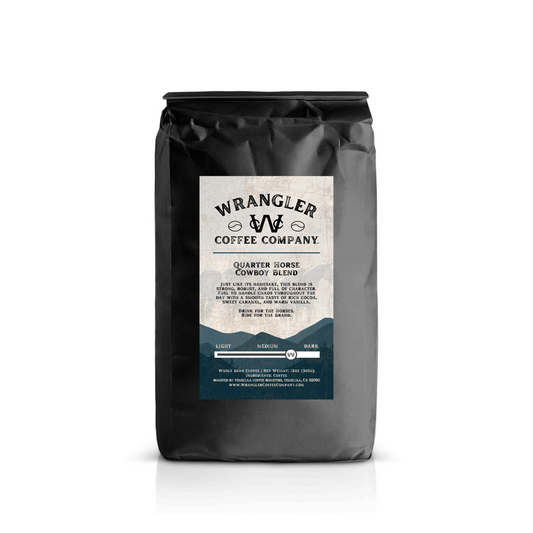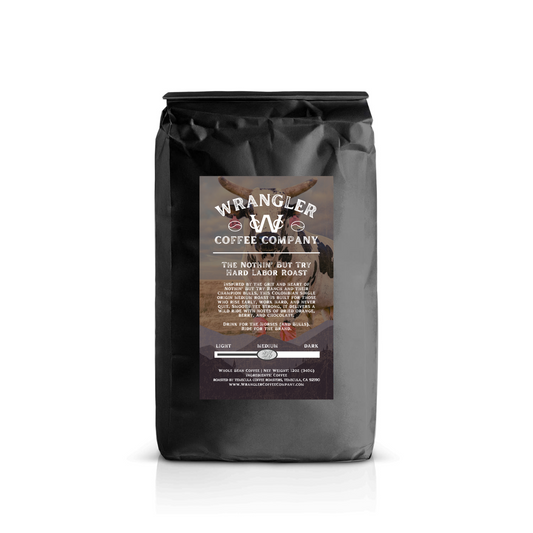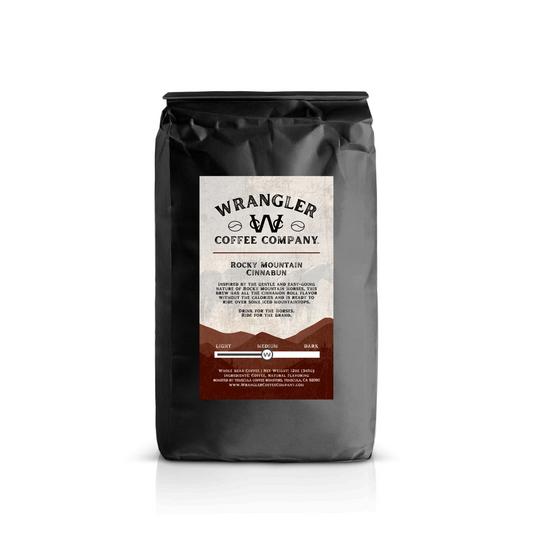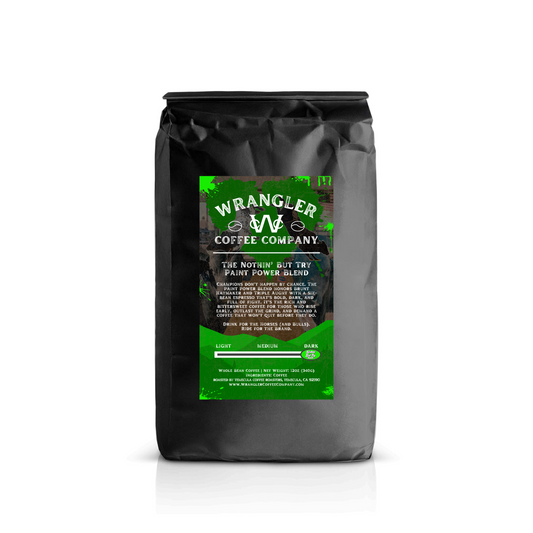
The Wild West of the Coffee Tariff Chaos
Share
In April 2025, the U.S. proposed a sweeping set of tariffs targeting goods from numerous countries — including coffee. As of early May, some of these have been delayed or adjusted, but the risk of steep tariffs on imported coffee remains very real. Given that the U.S. imports the vast majority of its coffee (about 99%), these tariffs are poised to have significant repercussions throughout the coffee industry and, by extension, us here at WCC. Below, we'll do our best to walkthrough what these tariffs might mean for your morning brew and how we're trying to navigate the crossfire between a couple global gunslingers in this war.
Also of note, this isn't a political analysis in any fashion. This is just our take on how tariffs—if enacted—may influence the coffee industry and our business. In other words, we won't entertain any political commentary or general tomfoolery here. We're here for horses and coffee. That's it, full stop. Furthermore, if there is any necessary context you feel we left out or even any info we get wrong here, then that's what our contact form is for - use it appropriately and constructively.
What is a Tariff:
According to Webster, tariffs, or levies, are payments that must be made to the government in order to import or export certain goods.
Impact on Coffee Prices:
The immediate effect of these tariffs will be an increase in the cost of imported coffee beans, pure and simple. As a result coffee importers, roasters, brands may face higher expenses, which are then likely to be passed on to consumers. Some predict that these added costs could result in price hikes of $1 to $3 per pound for specialty coffees, but you don't know just how strong or weak the storm is until it arrives. So, we'll have to wait-n-see. Consequently, coffee drinkers in the U.S. should anticipate paying more for their daily brew in the coming months, especially if we all panic before the storm and companies preemptively raise prices based off fear.
Challenges for Small Businesses:
Small, family coffee businesses are particularly vulnerable to these tariff-induced cost increases. Unlike larger corporations that may have the financial resilience to absorb some of these additional expenses, small farmers, roasteries, cafés, and other brands often operate with tighter margins. Such financial pressures could lead to difficult decisions, including raising prices, reducing staff, or worse. Ideally, cooler heads prevail, we all put away our six shooters, and start pull'n some six bean espresso shots instead. At least for the sake of small, mom-and-pop coffee businesses across the country.
Global Market Dynamics:
The tariffs have also altered the competitive landscape among coffee-exporting countries. Brazil, for example, faces a potential 10% tariff on its coffee exports to the U.S., while competitors like Vietnam and Indonesia are subject to steeper tariffs of 46% and 32%, respectively. This disparity could make Brazilian coffee more competitively priced in the U.S. market, potentially reshaping sourcing strategies for coffee importers, roasters, and brands. These proposed tariffs vary widely by country, potentially shifting how U.S. roasters source beans. Here’s a snapshot of how it breaks down:
| Country | Percentage of U.S. Coffee Imports | Tariff Rate Imposed |
|---|---|---|
| Brazil | Approximately 17% | 10% |
| Colombia | Approximately 16% | 25% |
| Guatemala | Approximately 6% | 10% |
| Honduras | Approximately 6% | 10% |
| Vietnam | Approximately 5% | 46% |
| Mexico | Approximately 5% | 10% |
| Indonesia | Approximately 4% | 32% |
| Peru | Approximately 3% | 10% |
| Ethiopia | Approximately 2% | 10% |
| India | Approximately 1% | 10% |
Industry Response and Advocacy:
In response to these developments, industry stakeholders—including us here—are advocating for exemptions to mitigate the tariffs' impact. The National Coffee Association (NCA) has previously called for coffee to be exempted from new tariffs. Similarly, a New York based roaster has launched a petition urging the federal government to exclude coffee from the sweeping tariffs, emphasizing the potential disruption to the American coffee industry and the economic harm to international supply relationships.
Looking Ahead:
As the situation evolves and we all get a clearer understanding, businesses and consumers alike will need to stay informed about further policy changes and market responses. Adapting to these new economic conditions may involve exploring alternative sourcing options, adjusting pricing strategies, and supporting industry efforts to seek relief from these tariffs. Ultimately, the resilience of our importers, roasters, and brands—large and small—will be tested as we all navigate these ever-shifting, complex economic changes.
Where Does This Leave WCC?
Good question, glad you asked. We're dodgin' bullets left and right like we're drinking a cup of coffee at the O.K. Corral in October of 1881, but we're hoping this fight is just as short and with far less bloodshed. How are we dodgin' said bullets? Another good question.
1. Great Suppliers: We have a great relationship with our coffee farmers and roasters, and we work closely with them to lock-in low lot prices for our coffee and maintain a steady flow of specialty-grade coffee for our customers without volatile price swings.
2. Great Variety: We have a variety of coffees from a variety of countries which limits our reliance on any specific importing country, thus dampening any price shocks from one particular country. In other words, we can take a few hits without biting the dust.
3. Great Process: We have an efficient roast-to-order process that maximizes freshness, limits packaging waste, and utilizes fast, low-cost shipping. Our whole business philosophy is to make the easy decision of running as efficiently as possible from the get-go so that we don't have to make hard decisions later on.
In short: we're watching closely, adapting quickly, and doing our best to keep your cup full without compromise. Whatever happens next, we’ll keep you in the loop — with no fluff, just facts (and coffee).
Will we need to raise prices? Yes, likely by the end of May.
To summarize this whole thing and evoke some old cowboy wisdom here: "Life is not about how fast you run or how high you climb, but how well you bounce." We'll just have to see how well we all bounce in this fight.
Updated: 05/08/2025




